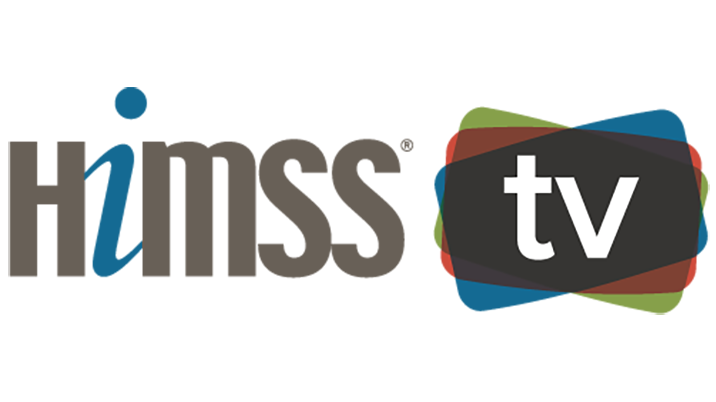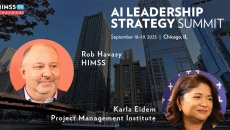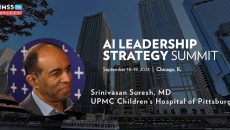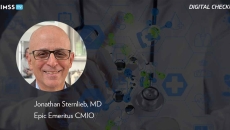HIMSS TV
As more than 25 new healthcare AI laws take effect, the National Conference of State Legislatures' Sarah Jaromin says the agency provides information to state leaders about how other states are handling topics like AI use in payer decisions.
Government regulation can slow health systems' AI progress; Ed Marx, Marx Advisory CEO, says showing policymakers AI's real-world benefits in person can help them understand its value more than traditional lobbying.
Lisa Suennen, managing partner at American Heart Association Ventures, and Ruby Gadelrab, CEO and founder of MDisrupt, explores next steps after AHA's $1 million milestone investment into MDisrupt, including plans to co-develop a platform.
Dr. Daniela Carvalho, pediatric otolaryngologist at Rady Children's Health in San Diego, shares insights on performing California's first pediatric Nucleus Nexa cochlear implant and what this means for the future of pediatric hearing care.
HIMSS' Rob Havasy and PMI's Karla Eidem predict that partnerships will be key around the world to making healthcare AI sustainable through sharing costs, resources and lessons learned.
Chris Kunney of IOTech Consulting says that chief AI officers must unite clinicians, C-suite leaders, IT teams and frontline staff to understand and use AI to drive innovation and enhance care delivery.
Dr. Srinivasan Suresh says the hospital implements AI tools slowly and responsibly, and only if they are brought forth by a clinician, which ensures they meet real clinical needs and can secure staff buy-in.
Veradigm's Courtney Yeakel discusses what payers, health systems and others need to know about compliance with CMS' Interoperability and Prior Authorization Final Rule, which takes effect January 1, 2026.
Creating strong healthcare IT teams, according to Dr. Jonathan Sternlieb, Epic Emeritus CMIO, comes from being willing to learn from others and from building communication, trust and respect with colleagues.
Rochester Regional Health's Dr. Everett Weiss says it is essential that everyone in your organization understands "what is our why" for using the technology, how it is helping them work more efficiently and how it is good for patients.










